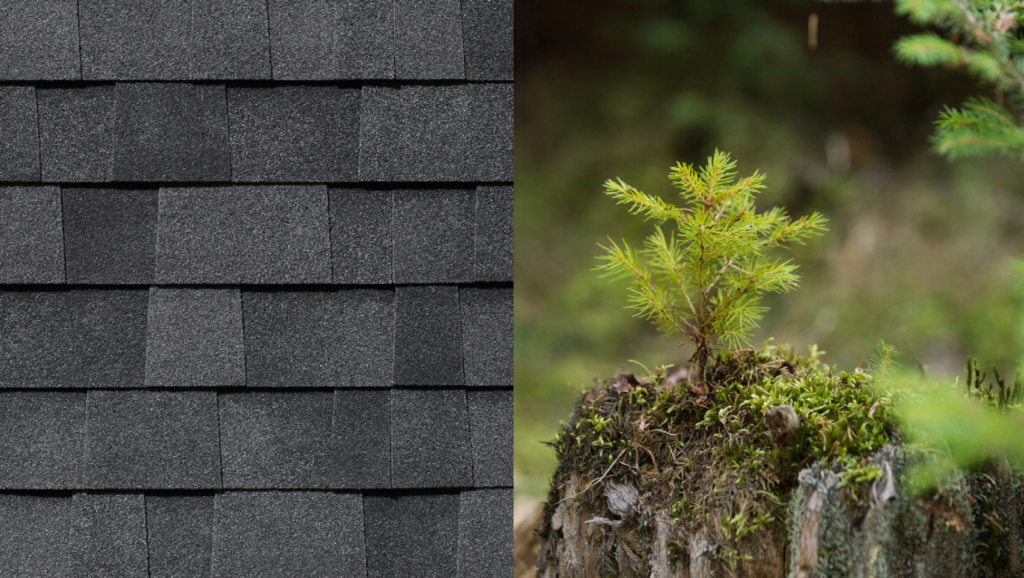Sustainable Roofing Solutions for Eco-Friendly Homeowners
There’s never been a better time to embrace sustainable living. It’s good for the environment and, in some cases, financially beneficial to adopt environmentally friendly products and strategies.
When it comes to your roof, there are some great sustainable roofing options out there, but not all are created equal—and there are plenty of myths and bad information out there, too. Keep reading to get a better idea of what to expect for energy-efficient roofing in Colorado.
Recyclable Roofing Materials
As more and more homeowners become aware of the environmental impact of their roofing choices, there is a growing demand for recyclable and eco-friendly roofing solutions. However, many homeowners prioritize durability and cost over sustainability. And with the amount of hail and strong winds we get in Colorado, that’s understandable! Fortunately, there are a number of great options available, both in terms of materials and installation methods. But it’s possible to choose a sustainable option that also checks those boxes.
Asphalt shingles: Asphalt shingles are made from a combination of asphalt, fiberglass, and recycled materials, such as paper and talc. They are a relatively affordable and easy-to-install option, and in some states they can be recycled at the end of their lifespan.
Metal (aluminum, steel, zinc, and copper) roofs: Metal roofs are made from a variety of materials, including steel, aluminum, and copper. They are highly durable and energy-efficient, and they can be recycled at the end of their lifespan.
Tile roofs: Tile roofs are made from clay, concrete, or slate. They are very durable and can have a long lifespan, making them a sustainable choice. However, they are not as recyclable as other materials.
Renewable roofing materials: ethically sourced wood shakes from healthy, managed forests can be a beautiful roofing option. However, they are not fire-resistant or as energy efficient as metal or asphalt roofs.
Other Sustainable Roofing Options
In addition to choosing recyclable roofing materials, there are also a number of eco-friendly roofing installation methods that can lower your environmental impact of a new roof.
White roofs: white in color to reflect the sun’s rays and lower cooling costs.
EPDM rubber roofs: made from synthetic rubber, are lightweight and easy to install, and they can be recycled at the end of their lifespan.
Green roofs: also called a “living roof” because it’s made of plants that reduce moisture runoff, reduce heat, and help clean the air. Popular vegetation options for Colorado include sedum, grasses, shrubs, vines and native flowers.
Clay tiles: made from natural clay and are a durable and long-lasting roofing material. They are also fire-resistant and can help improve the insulation of your home.
Smog-Reducing Shingles
There’s also a new type of sustainable roofing shingle from Malarkey that is designed to help reduce smog through the addition of granules that use sunlight to help clean the air. J&K Roofing is proud to be an experienced 3M smog-reducing roof specialist.
Current Issues with Recycling Asphalt Shingles in Colorado
But are asphalt shingles recyclable in Colorado? There’s a misconception that asphalt shingles are recyclable in Colorado. The Colorado Department of Public Health and Environment adopted a policy in September 2015 stating that asphalt roofing shingles are not considered a recyclable material in Colorado. The policy was adopted due to issues with several recycling locations that accepted singles for recycling, and then abandoned them.
Why Roofing Companies and Manufacturers are Focused on Advancing Ways to Recycle Asphalt Shingles
- Environmental concerns: Asphalt shingles are a major source of waste in landfills. In the United States, an estimated 15 million tons of asphalt shingles are disposed of in landfills each year. They take up a lot of space in landfills, and this waste can release harmful pollutants into the environment.
- Sustainability: Roofing companies are increasingly focused on sustainability. By recycling asphalt shingles, they can reduce their environmental impact and help to create a more sustainable future.
- Economic benefits: Recycling asphalt shingles can also be economically beneficial for roofing companies. By recycling shingles, they can reduce their costs for raw materials and disposal. They can also create new markets for recycled shingles, such as in the asphalt pavement industry.
- Government Support: Many state and local governments have enacted policies that support asphalt shingle recycling. These policies can include things like providing financial incentives for recycling or requiring that recycled asphalt be incorporated into paving materials.
- Industry support: The roofing industry has also been supportive of asphalt shingle recycling. Several major roofing manufacturers, such as Owens Corning, GAF, IKO, CertainTeed and Malarkey, have developed new manufacturing lifecycles and processes that promote recycling.
Benefits of Recycling Asphalt Shingles
As a result of these factors, roofing manufacturers are increasingly investing in research and development to find new ways to recycle asphalt shingles. Here are some of the benefits of recycling asphalt shingles:
- Reduces landfill waste: Recycling asphalt shingles helps to reduce the amount of waste that goes to landfills. This is important because landfills are a major source of environmental pollution.
- Creates new markets for recycled materials: Recycling asphalt shingles creates new markets for recycled materials. This can help to reduce the demand for virgin materials and promote a more sustainable economy.
- Saves energy and raw materials: Recycling asphalt shingles saves energy. This is because it takes less energy to recycle materials than to produce new materials from raw materials.
- Protects the environment: Recycling asphalt shingles helps to protect the environment. This is because it reduces the release of pollutants into the air and water.
Roofing Manufacturing is Changing
Many roofing manufacturers are focusing on sustainable roofing as a priority. Take a look at what some of the major roofing manufacturers are working on.
Owens Corning
- Approach: Owens Corning is developing a new process to recycle asphalt shingles into new roofing materials. The process involves breaking down the shingles into their raw materials, which can then be used to make new shingles, roofing underlayment, or other products.
- Benefits: The new process reduces the amount of virgin materials needed to produce new shingles, and helps to reduce the amount of asphalt shingles that end up in landfills. It could also help to create new markets for recycled asphalt shingles.
Malarkey
- Approach: Malarkey is using upcycled rubber and plastic polymers to create durable and eco-friendly asphalt shingles. The company gets the upcycled rubbers and plastics from the landfill (ex., recycled tires) and incorporates them into their shingles, reducing landfill wastes.
- Benefits: Malarkey’s shingles are made with recycled materials, so they are more sustainable than traditional asphalt shingles. They are also more durable, so they can last longer on roofs.
GAF
- Approach: GAF is working to develop a process to recycle asphalt shingles into new roofing products, such as roofing granules. The company is currently testing the process in a pilot plant.
- Benefits: If successful, GAF’s process could help to reduce the amount of asphalt shingles that end up in landfills. It could also help to create new markets for recycled asphalt shingles.
IKO
- Approach: IKO is working to develop a process to recycle asphalt shingles into asphalt pavement. The company is currently testing the process in a pilot plant.
- Benefits: If successful, IKO’s process could help to reduce the amount of asphalt shingles that end up in landfills. It could also help to create new markets for recycled asphalt shingles.
CertainTeed
- Approach: CertainTeed is developing a process that uses a combination of heat and mechanical grinding to break down asphalt shingles into their individual components. These components can then be reused to make new shingles or other products.
- Benefits: The benefits of this approach include the fact that it is relatively simple and efficient. It also produces a high-quality recycled material that can be used to make new products. This approach is the only one that uses a combination of heat and mechanical grinding.
Work With an Experienced Roofing Contractor
We’re excited about the progress in asphalt shingle recycling. If you’re ready to add a recyclable roofing material to your home to help lower your carbon footprint, make sure you do your research and hire a roofing company with the necessary experience to do the job correctly.
Our team is professional and certified to work with sustainable and renewable roofing materials. Get in touch with us today if you’re in the Denver Metro, Front Range, Colorado Springs, or Northern Colorado areas. Call 303-425-7531 or contact us online.

